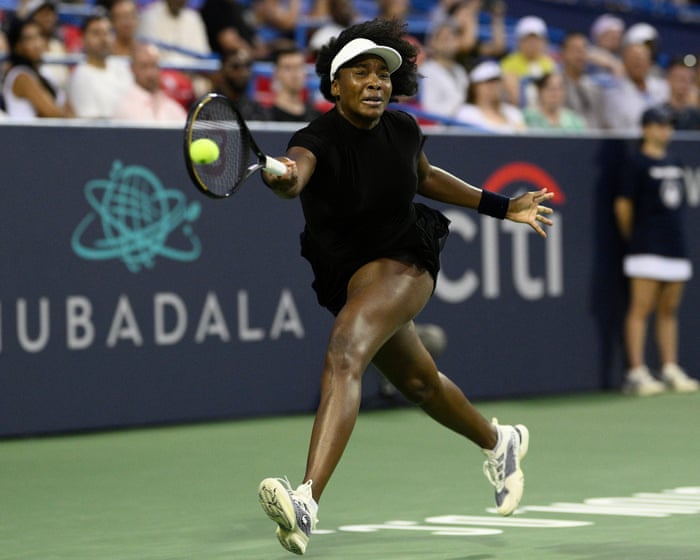“I still haven’t seen the Rolling Stones,” Venus Williams says with a smile, recalling her unforgettable professional tennis debut at age 14 in Oakland, California—a moment that lived up to years of hype about her extraordinary potential. Her first pro match happened next to a Rolling Stones concert. Now, 31 years later at 45, Williams is still competing.
Three weeks after her return to professional tennis—her first match in 16 months—she defeated then-world No. 35 Peyton Stearns in straight sets at the Citi Open in Washington. That victory made her the second-oldest woman in history to win a WTA Tour-level singles match and quieted critics questioning her longevity in the sport. Now, she’s continuing her comeback at the Cincinnati Open.
Once one of the most prodigious talents of her generation—a US Open finalist by 17—Williams remains one of the greatest tennis players ever. A seven-time Grand Slam singles champion, Olympic gold medalist, and former world No. 1, she still steps onto the practice court daily, driven by her love for the game.
“Love is the key, right?” Williams says. “If you don’t love it, then get out of it—if you have that luxury. Not everyone does. For me, a big motivation is coming back and playing in the best health I can. I never stopped hitting the ball, even when I was away—not as intensely as during tournaments, but I kept at it. At the end of the day, you have to live life on your own terms. It doesn’t matter what anyone else says or thinks. If you get to live by your own rules, do it. I firmly believe in that.”
But this comeback isn’t just about tennis. Last month, Williams revealed she has struggled with fibroids—non-cancerous uterine tumors—for years, enduring severe symptoms like pelvic pain and heavy bleeding. The condition not only impacted her daily life but also her career, as she was misdiagnosed for years.
After her Washington return, Williams shared videos from a year ago when she underwent open myomectomy surgery to remove fibroids and a large adenomyoma (uterine tissue growth). “I was told I was inoperable,” she wrote. “That I could bleed to death on the table. That I should use a surrogate and give up hope of carrying my own children. I was misdiagnosed and untreated for years.”
Now back on court, Williams is using her platform to raise awareness about women’s health. “After my surgery, I felt so much gratitude—I had the resources to finally get through it. At that point, I wasn’t thinking about pro tennis, but now, a year later, I’m healthy and ready to compete.”
Her next challenge? Facing 22-year-old world No. 51 Jéssica Bouzas Maneiro. When Bouzas Maneiro was born on September 24, 2002, Williams had already won four Grand Slam titles, reached No. 1, and played in multiple major finals.Venus Williams has reached three consecutive major finals against her younger sister, Serena. The older Williams sister said her focus is on the US tournaments for her comeback and she probably won’t play after the US Open. Beyond that, her plans are uncertain. “I’m taking things one day at a time,” she said. “Never count me out. That’s all I can say right now.”



